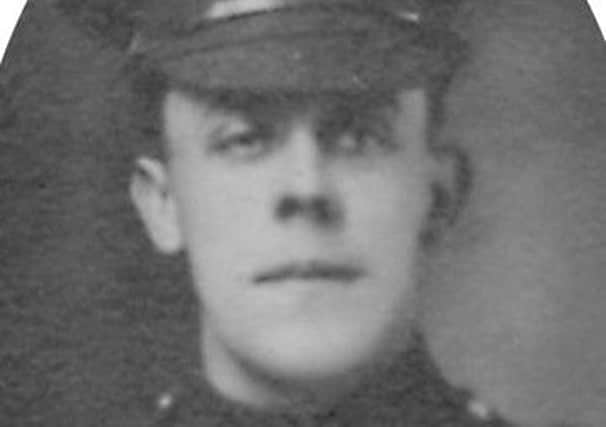Amiens: A guilt that spanned the generations


The centenary of the Battle of Amiens will be marked today by a service in the town’s 13th century cathedral, attended by Prince William and the Prime Minister.
But it will be a few rows further back that Mrs Gray’s family will say a silent prayer in the hope that they might at last lay her demons to rest.
Advertisement
Hide AdAdvertisement
Hide AdHers is one of the millions of small stories from which the tapestry of tragedy that constituted the First World War was woven.
And as today’s service begins, other families, inside the church and around the world, will also lay their heads in contemplation.
David Turner, a care worker from Drighlington in Leeds, will be among a family party of six at the cathedral overlooking the River Somme. Mrs Gray was his grandmother.
For 60 years, she carried the guilt that a stolen visit to her hospital bedside by her uncle had cost him his life. She went to her grave not knowing that the war would have killed him anyway.
Advertisement
Hide AdAdvertisement
Hide AdHis name was Ernest Podmore, a private from the Potteries and one among millions sent to the Western Front.
He was in training when he heard his beloved niece was ill, and went absent without leave for 18 days to be at her bedside. Eventually, the police got him and carted him back off to his unit.
Mrs Gray never saw him again, and convinced herself that he had been sent to the deadliest section of the front as punishment for his kindness.
“Jessie was very close to Ernest. She was very much mistaken in her belief that her illness resulted in his death,” Mr Turner said.
Advertisement
Hide AdAdvertisement
Hide Ad“She died in 1979, long before we got a chance to research Ernest’s story and tell her the truth.
The reality, disclosed in military records released in the decades since, was that he had been only lightly punished for his indiscretion and died fighting alongside his brothers-in-arms in his battalion.
“My mother always felt guilty about his death,” said Mr Turner’s mother, Elizabeth, who is 86 and also in today’s family gathering at Amiens.
“We had to be very careful on November 11 each year. We couldn’t get her to see that he would have been sent to France even if he hadn’t overstayed his leave.
Advertisement
Hide AdAdvertisement
Hide Ad“It was a terrible cloud hanging over her and I was very aware of it when I was growing up. The whole family was aware, even though we knew she was in no way responsible, and that sense of grief and loss passed down the generations.”
Private Podmore is buried in the Commonwealth War Graves Commission cemetery at Beaucourt-en-Santerre. The inscription on his grave says: “He proved himself a man.”
He was 24.
“ He was an ordinary guy caught up in something very big,” Mr Turner said.
“Like so many men on that front line, he stood with his comrades, obeyed orders and moved forward into obvious danger. We’d love to be able to tell Jessie that his sacrifice helped to bring peace closer.”
Advertisement
Hide AdAdvertisement
Hide AdIt had been his family’s ambition to visit his grave on the centenary of his death – the very day on which the battle began.
It was the start of the what became known as the Hundred Days Offensive, and led ultimately to the Armistice.
As the Allies advanced by eight miles, the supreme commander, General Erich Ludendorff, was moved to describe it as“the black day of the German Army”.
It was also one of the first large armoured battles, and it brought to an end the era of trench warfare.
Advertisement
Hide AdAdvertisement
Hide AdBut the price of progress was high. Pvt Podmore, serving with the Canadian Infantry, having emigrated from Stoke in 1913, was among 9,000 British Empire troops fighting that day to be killed or wounded. The numbers of German casualties was higher still, at some 27,000.
Yet compared to the losses sustained in earlier offensives – nearly 60,000 had fallen on the first day of the Somme two years earlier – Amiens seemed like an unprecedented victory for the Allies, said Gervase Phillips, principal lecturer in history at Manchester Metropolitan University and an expert on the First World War.
The official German history of the day said that “as the sun set … on the battlefield, the greatest defeat the Army had suffered since the beginning of the war was an accomplished fact”.
“It was not simply the heavy casualties or the extent of lost ground that caused Ludendorff such worry, but the manner of the defeat. Upwards of 12,000 German soldiers had surrendered,” Mr Phillips said.
“After Amiens, Ludendorff’s faith in the German military was shaken and he began to argue that the war had to be terminated. The battle marked the beginning of the end of the First World War.”